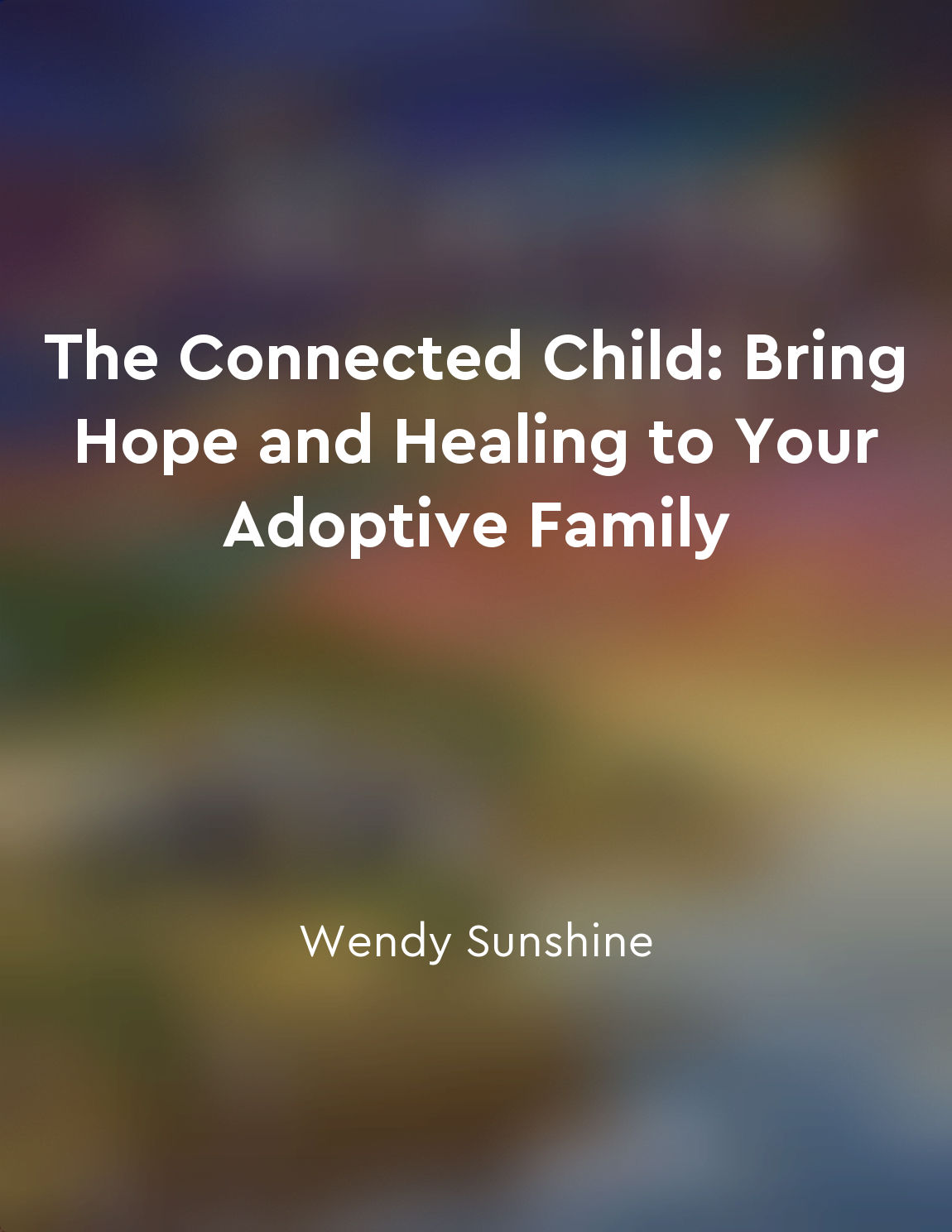Acknowledge the child's feelings from "summary" of How to Talk So Kids Will Listen and Listen So Kids Will Talk by Adele Faber and Elaine Mazlish by
When a child expresses their feelings, it is important to acknowledge them. This means letting the child know that you understand what they are feeling, without judging or dismissing their emotions. By acknowledging their feelings, you show the child that you are listening and that you care about their experience. Acknowledging a child's feelings can be as simple as saying, "I see that you are feeling sad," or "It sounds like you are really frustrated right now." By labeling the child's emotions, you help them to identify and process what they are feeling. This can also help to diffuse the intensity of their emotions, as they feel heard and validated. It is important to remember that acknowledging a child's feelings does not mean that you are agreeing with their behavior. You can validate a child's emotions without condoning their actions. For example, you can say, "I understand that you are angry, but it is not okay to hit your sister." By separating the child's feelings from their behavior, you can address the issue at hand while still showing empathy towards their emotions. When you acknowledge a child's feelings, you are building a foundation of trust and understanding in your relationship. The child learns that their emotions are valid and that they can come to you for support when they are struggling. This open communication can lead to more productive conversations and problem-solving in the future. In addition to verbal acknowledgment, you can also use body language and tone of voice to show that you are listening and empathizing with the child. Making eye contact, nodding, and using a gentle tone can all convey your support and understanding.- Acknowledging a child's feelings is a crucial aspect of effective communication and relationship-building. By validating their emotions, you create a safe space for the child to express themselves and feel heard. This sets the stage for healthy emotional development and positive interactions between you and the child.
Similar Posts
Cultivate a growth mindset
To cultivate a growth mindset means to believe that abilities and intelligence can be developed over time through effort, perse...
Establishing clear boundaries with clients enhances professionalism
Establishing clear boundaries with clients is a key aspect of professionalism in social and human services. When boundaries are...
Trust in the power of encouragement to transform behavior
Encouragement is a powerful tool that can transform behavior. When we trust in the power of encouragement, we believe in the ab...

Seeking support from professionals can be beneficial
When challenges arise in the course of adoption, it can be tempting to try and tackle them on our own, relying solely on our ow...
Offer alternatives and creative solutions
When we find ourselves in a situation where we need to say no, it is important to remember that a simple rejection may not alwa...
Be a good role model for others to follow
Being a good role model for others to follow is a fundamental concept in dealing with people effectively. It involves setting a...
Worklife balance is achievable
Achieving work-life balance is a common goal for many working parents, but it can often feel like an elusive dream. However, it...

Promote a love of learning and a passion for discovery
The essence of education lies in fostering a deep-seated love for learning and a fervent desire for discovery in children. It i...
Understanding and speaking a child's love language requires effort and intentionality
Understanding and speaking a child's love language is not something that happens effortlessly. It requires deliberate effort an...
Hold oneself accountable before others
Taking ownership of our actions and behavior is a critical aspect of maintaining healthy relationships and resolving conflicts ...


